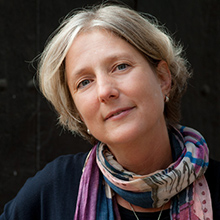- Duration
- June 2018 - May 2022
- Coordinator
- Franco Sassi (Imperial College of Science Technology and Medicine)
- Funded by
- European Commission (H2020)
- Website
- http://stopchildobesity.eu
Childhood obesity has grown to become one of the most dramatic features of the global obesity epidemic, with dire long-term consequences on health, social and economic outcomes. The spread of obesity has been fuelled by changes in social norms and living environments that have shaped individual behaviours making them increasingly conducive to excessive and imbalanced nutrition, sedentary lifestyles, and ultimately obesity and the diseases associated with it. Obesogenic environmental incentives and social influences are especially strong, and add to material deprivation, in disadvantaged and vulnerable children (along multiple dimensions of disadvantage, including economic as well as social, cultural and ethnic dimensions), exposing them to the highest risk of obesity and making them less responsive to behaviour change interventions.
The STOP project will bring together a range of key health and food sector actors to generate scientifically sound and policy-relevant evidence on the factors that have contributed to the spread of childhood obesity in European Countries. Over the course of four years the European Commission-funded collaborative will posit alternative policy options to address the problem.
The research will expand and consolidate the multidisciplinary evidence base upon which effective and sustainable policies can be built to prevent and manage childhood obesity. STOP also aims at creating the conditions for evidence to translate into policy and for policy to translate into impacts on the ground.
Major health and food sector actors, including scientists, health professionals, government policy makers, national public health agencies, international organisations, civil society and business organisations are working together to establish mechanisms through which policy-relevant evidence can be generated, made available and used in the design and implementation of effective and sustainable solutions for the childhood obesity problem at the EU, National and local levels. The project has adopted a trans-disciplinary, multi-stakeholder and multi-sectoral (whole-of-government) approach, in a “Health-in-all-policies” framework. In the pursuit of the above goals, the project will benefit from the support and contributions of partners from non-European countries (United States and New Zealand), who will complement the expertise of European partners and share valuable experiences in addressing childhood obesity.
Partners
- Imperial College London, United Kingdom
- Istituto Superiore di Sanità, Italy
- Tervise Arengu Instituut, Estonia
- Istituto di Studi per l’Integrazione dei Sistemi (ISIS), Italy
- Victor Babeș University of Medicine and Pharmacy, Timișoara, Romania
- Instituto de Saúde Pública da Universidade do Porto (ISPUP), Portugal
- Institut National de la Recherche Agronomique, France
- University of Hasselt, Belgium
- European Public Health Alliance, Belgium
- World Obesity Federation, United Kingdom
- University of Ljubljana, Slovenia
- Karolinska Institute, Sweden
- Nacionalni inštitut za javno zdravje, Slovenia
- University of Zagreb, Croatia
- University of Auckland, New Zealand
- Barcelona Institute for Global Health (ISGlobal), Spain
- University of Turin, Italy
- National Institute for Health and Welfare, Finland
- World Health Organization, Switzerland
- CIBER – Center for Biomedical Research Network, Spain
- Directorate-General for Health, Portugal
- University of Southern California, United States
- HEC, France
- AgroParisTech, France
Third Parties
- OECD
- EIT Health
- EAT Foundation
- Barilla Center for Food & Nutrition Foundation
- Harvard University
- International Agency for Research on Cancer (IARC)
- EIT Food
Total funding
€ 10 millions
Our Team
Principal Investigator (PI)
-
 Martine Vrijheid Research Professor and Head of the Environment and Health over the Lifecourse Programme
Martine Vrijheid Research Professor and Head of the Environment and Health over the Lifecourse Programme
ISGlobal Team
-
Silvia Fernández Barres
Other projects
ENDOMIX
Understanding how endocrine disruptors and chemical mixtures of concern target the immune system to trigger or perpetuate disease
AM-MENTAL
What happens with your mental health when your supervisor is an algorithm?
PANAMA
Inhaled dose of air pollution - an integrative approach towards personalized air pollution exposure assessment in participants with and without respiratory diseases
e-QuoL
e-health tools to promote Equality in Quality of Life for childhood to young adulthood cancer patients, survivors and their families
B-Triage
Una prueba en el punto de atención para la estratificación del riesgo de los pacientes febriles basada en los niveles de sTREM-1
El microbioma intestinal y la disrupción circadiana
Un estudio epidemiológico molecular sobre enfermedades cardiometabólicas y salud mental
IHEN
International Human Exposome Network
EXPONIT
Analysing and studying how night shift work affects workers' circadian rhythms and health





